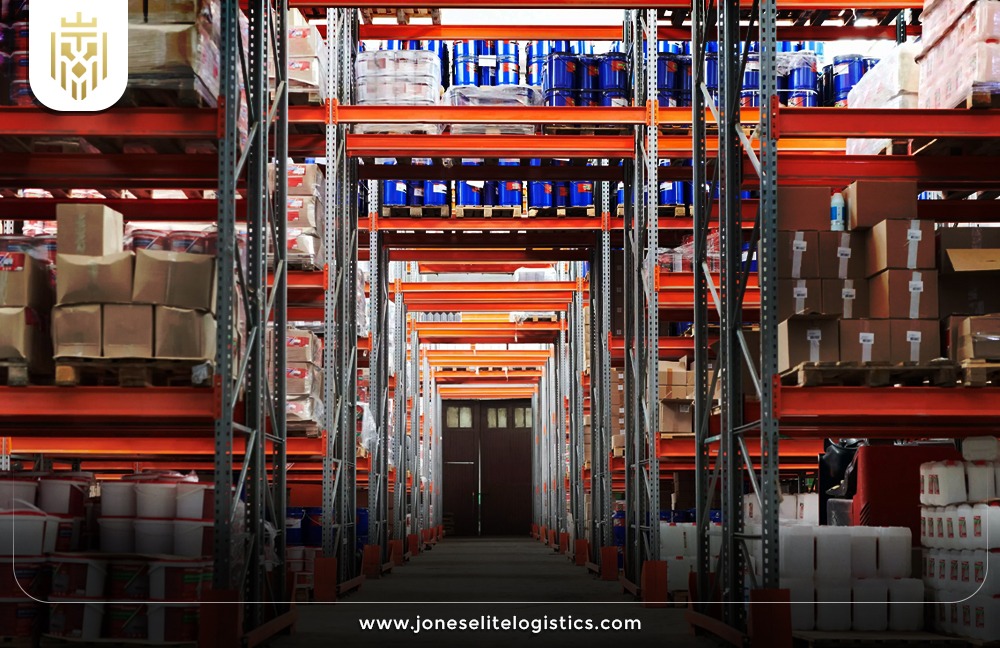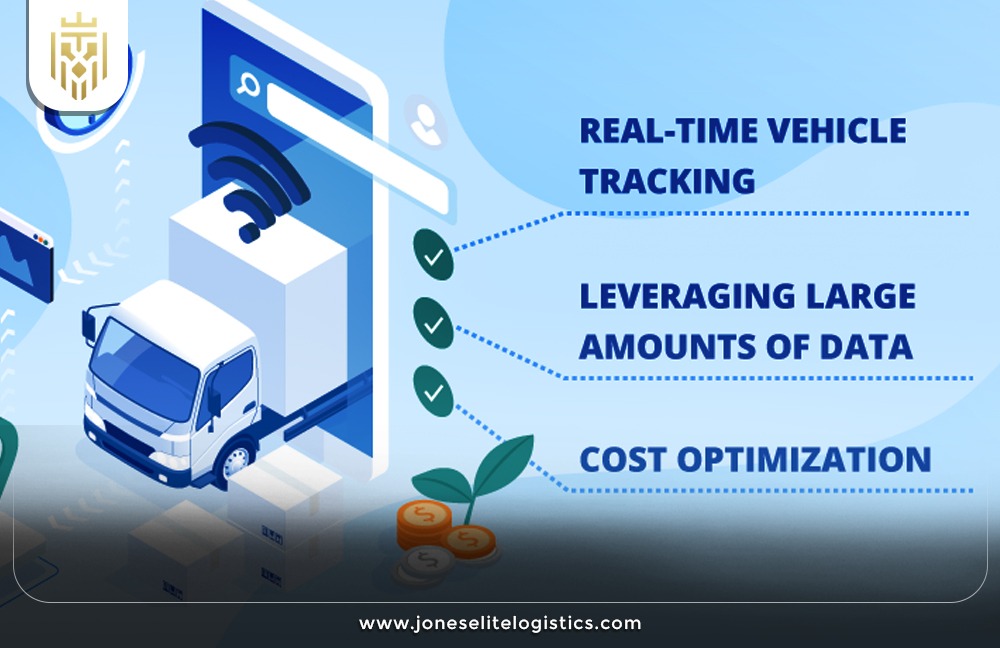Understanding the Challenges of Indian Logistics
The vast number of industries in India face a number of logistics challenges due to its diverse markets and huge area. The nation’s logistic industry is a vital piece that is responsible for fueling trade and economic growth, however, the sector faces a lot of roadblocks which usually lead to low efficiency. Explore the Indian logistics industry and the challenges associated with its operations through this blog and gain an understanding of some effective ways to overcome them.
Identifying Logistical Issues Hindering Efficiency
Poor transportation infrastructure is one of the major problems that the Indian logistics industry faces on a daily basis. The nation’s road and rail transportation infrastructure is inadequate, congested and badly maintained resulting in long delays and making everything more expensive. The challenges of last-mile transportation make it worse for the industry and to carry out operations effectively. Poor coordination of inter-modal transportation systems further creates problems like delays in delivery and increased costs.
The other difficulty is the high costs associated with logistics transportation. High fuel prices, road toll taxes, and tedious procedures to get licenses are some of the reasons behind the high costs demanded for transportation. Besides, these costs not only impact the overall profitability of the logistics firms in India but also lead to an increase in the prices of the products being delivered to consumers.

Additionally, the complexity of the tax structure in India and the fragmented nature of the vast market make the process more difficult. While the introduction of the Goods and Services Tax (GST) has relieved some of the problems related to a complex tax system, industries still face some operational challenges.
Inventory Management Woes: Optimizing Stock Flow Amidst Logistical Issues
Proper inventory management is an absolute necessity in ensuring smooth and effective logistical operations. More than often companies offering services in the Indian logistics Industry may find themselves in a tough spot due to insufficient real-time monitoring of inventory stock and inaccurate demand forecasting. Businesses need to make investments in advanced equipment like RFID tags, barcode scanners, and so on, which would allow them to achieve more accurate inventory data and better flow of stock.

Furthermore, incorporating the latest Warehouse Management System(WMS) technology will aid in streamlining the complex work in inventory management. WMS helps companies keep an accurate record of stock at a given time, maximizing space utilization, and automating processes that prevent errors and enhance overall productivity.
Regulatory Hurdles: Navigating Logistical Problems in the Industry
The logistics industry in India is facing notable challenges due to the complex regulatory framework. Challenges like difficult documentation process, requirement for multiple licenses and bureaucratic red tape are affecting the smooth movement of goods.

However, to overcome these logistics challenges, companies need to have good governance relations with the regulatory authorities that impose the laws and at the same time monitor the changes in the regulations. Integrating digital solutions in documentation using digital documents and e-permits can reduce the complexity of administrative tasks and ensure compliance with the guidelines.
Technology as a Solution: Innovations to Tackle Logistical Problems
The recent developments in technology in efforts to digitalize the logistics industry are serving as a major game-changer in dealing with logistics challenges. Technologies like loT, cloud-based platforms and route optimization software are emerging as prominent tools helping out Indian logistics companies.
One aspect of technology used by the logistics industry is the new route optimization software. Here the technology takes different aspects into account such as weather, fuel prices, and traffic density to calculate the most efficient way to reach a destination. Logistics companies can meet their objectives of reducing costs and improving timely delivery by minimizing distance and time.

The Internet of Things (IoT) is also one of the game-changers that is completely transforming the logistics industry in India. Being equipped with IoT devices like sensors and trackers can enhance operations by allowing businesses to have better visibility in the flow of goods with real-time data, which can then streamline work and hence result in fewer losses and damage.

Cloud-based platforms are among the top technological tools being preferred by companies in India to solve logistic challenges. This allows teams to coordinate and share data in an effective way by increasing transparency and facilitates easy-to-understand communication. In addition, it also improves collaboration between stakeholders, in turn enhancing and streamlining operations.
Collaboration and Partnerships: Building Resilience in the Face of Logistical Challenges
To overcome the logistics challenges faced by Indian companies, collaboration and partnerships are very essential. Forming strategic alliances along the supply chain i.e. transporters, storage facility owners and technology companies can benefit all the stakeholders. Companies can leverage each other’s strengths and capabilities to further enhance the efficiency of their operations.
Working with logistics aggregators and third-party logistics(3PL )companies can also help to build capacity and enable access to a larger network of resources. Making use of resources and sharing them can result in a reduction in expenses and an improvement in productivity.
Moreover, it is essential to create and maintain partnerships with government departments to overcome regulatory obstacles. Logistics companies and regulatory bodies can accomplish more when they work together. Identifying problems and overcoming logistics challenges will be easy in turn enabling a smoother flow of goods.
Future Outlook: Strategies for Success in Indian Logistics Challenges
Despite the logistics challenges companies face, the future of this industry is expected to be bright. To succeed in this evolving landscape, logistics companies must
1. Embrace technology: Invest in digital solutions like IoT devices, and automation to have access to real-time data and advance transparency. By embracing technological solutions businesses can also increase visibility and improve customer experience.
2. Prioritize skill development: Providing training and focusing on the improvement of qualifications of human resources is key to ensuring that workers are ready to deal with any logistics challenges in the future.
3. Optimize routes and modes of transportation: Technology being such a vital support, logistic companies must consistently assess and enhance their route structure in order to reduce the associated costs and improve the efficiency of the process.
4. Enhance customer experience: Offering appropriate services with a personalized touch and better value can help logistics firms go beyond the competition and thereby increase their customer base.
5. Collaborate and build partnerships: Establish supportive partnerships with significant stakeholders so that everyone will be able to contribute financial and non-financial resources by mutual agreement, to solve the logistics challenges efficiently.
To sum up, there are several logistics problems faced by Indian companies even today, however, by understanding the landscape, determining problems, exploiting the technology, establishing collaborations and partnerships, and adopting effective strategies, the logistics firms of India can combat the challenges and sustain their success amid the swiftly growing sector. For comprehensive logistics services across India, contact the best logistics service provider, Jones Elite Logistics.
FAQs
1. What are the key factors contributing to the logistical challenges in India?
Inadequate infrastructure, complex tax systems and high costs of transportation are a few factors contributing to the logistical challenges in India. These factors in turn increase the costs, and time and affect the efficiency of operations.
2. How do logistical challenges affect the efficiency of supply chains?
Logistical challenges interfere with the efficiency of supply chains by increasing prices, time of delivery, possibility of more errors and losses. All these affect the smooth flow of goods across the supply chain.
3. What role does technology play in addressing logistical problems in India?
Technological solutions like loT devices, cloud-based systems and route optimization software provide effective solutions to overcome logistical problems. They provide businesses with real-time data to track and ensure the smooth functioning of their operations.
4. How do logistical issues impact inventory turnover and stock availability?
Logistical issues impact inventory turnover and stock availability by increasing the holding costs, damaging the business’s reputation and loss of sale opportunities. This is the result of logistical issues like inadequate warehouse management, delays in shipping and incorrect inventory forecast.







